Coming Weeks Are Decisive For Iran Nuclear Deal, Merkel Says
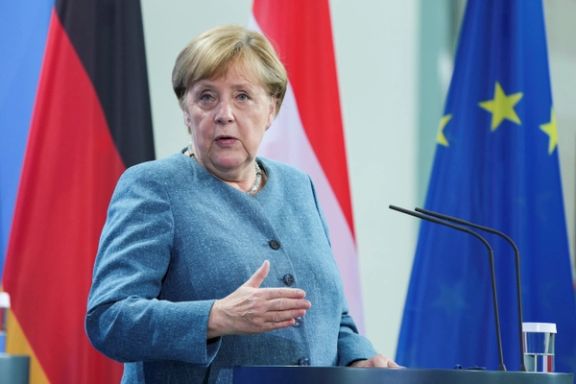
The coming weeks are decisive for the future of the nuclear deal with Iran, German Chancellor Angela Merkel said on Sunday.

The coming weeks are decisive for the future of the nuclear deal with Iran, German Chancellor Angela Merkel said on Sunday.
The German leader added that every day that passes without Tehran responding to US overtures will result in Iran enriching more uranium.
Speaking during a visit to Israel, the outgoing chancellor said that Russian President Vladimir Putin and Chinese President Xi Jinping also had a responsibility to help to push Iran back to the negotiating table, she said at a joint news conference with Israeli Prime Minister Naftali Bennett.
Western powers have been warning that time is running out to save the 2015 nuclear deal (JCPOA) but so far have taken no action.
"I also see a responsibility for Russia and China here, since if the JCPOA (nuclear deal) is no longer doing what it's meant to do then that's very difficult, so we are now in very decisive weeks for this deal."
Iran in June suspended nuclear negotiations that had started in Vienna in April, saying its new government needed time to prepare for further talks, but so far has delayed a decision.
Iran's nuclear chief Mohammad Salami told state television on Saturday that Tehran has stockpiled 120 kg of 20-percent enriched uranium.
With reporting by Reuters
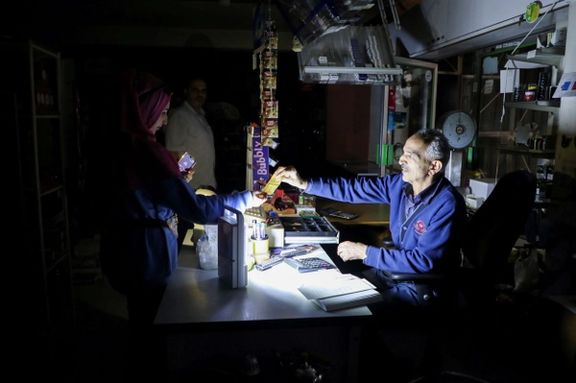
Lebanon's two main power plants were forced to shut down after running out of fuel plunging the country into darkness on Saturday, despite Iran sending fuel.
Iran began sending fuel to Hezbollah, its ally in Lebanon in September. The Shiite militia group said its arrangement with Iran would help the country amid a crippling energy crisis, but it is not clear why the shipments have not reached the power plants.
So far two vessels have docked at Syrian ports from where the fuel is being sent to Hezbollah by tanker trucks. Hundreds of these tankers are said to have delivered fuel.
Erratic power supplies have put hospitals and essential services in crisis mode.
The Lebanese increasingly depend on private operators that also struggle to secure supplies amid an unprecedented crash of the national currency.
The shortage of diesel and fuel, along with an antiquated infrastructure, has worsened power cuts that have been a fixture for years.
Blackouts that used to last for three to six hours could now leave entire areas with no more than two hours of state power a day.
On Saturday, the state electricity company said Zahrani power plant in the country's south was forced to shut down because of fuel shortage; the main plant in the north was shut down on Thursday.
Electricite Du Liban said the shutdown reduces the total power supply to below 270 megawatts, which means a major drop in the stability of the grid.
It said it would reach out to fuel facilities in the country's north and south to see if they can procure enough fuel to bring back power.
It added that a new shipment of fuel from Iraq is expected next week.
But the company, responsible for most of the government's debts, is dependent on credit from the country's central bank, which is struggling with dwindling reserves.
The government has gradually raised prices of fuel and diesel as the central bank cut back on subsidizing dollars for imports, adding to the hardships in Lebanon, where about three quarters of the population has plunged into poverty over the last year.
With prices soaring and unemployment at a record high, many families have given up private generators and few hours of state power a day is all they get.
On Saturday, distributors of gas canisters used for cooking and heating stopped operating, saying subsidy cuts amid black-market currency fluctuations meant they were selling at a loss.
The energy sector has been a huge drain on state coffers for decades.
The electricity company has annual losses of up to $1.5 billion and has cost the state more than $40 billion over the past decades.
Energy sector reforms have been a key demand by the World Bank and the International Monetary Fund.
Iran’s foreign minister Hossein Amir-Abdollahian who visited Lebanon October 7-8 promised more fuel deliveries while the government has no control over fuel already sent to Hezbollah.
Iraq has also made a swap deal with the government that has helped Lebanon's state electricity company stay operational for days.
The new Lebanese government is also negotiating supplies of electricity from Jordan and natural gas from Egypt, also through Syria.
But those deals are likely to take months.
With reporting by AP
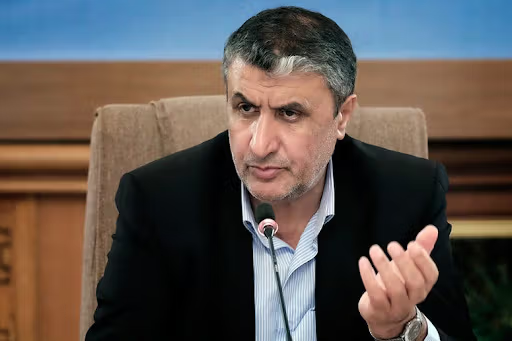
The head of Iran’s atomic energy agency has said that stockpiles of 20-percent enriched uranium have reached 120kg, a third more than previous estimates.
As Iran has stopped participation in the Vienna nuclear talks with world powers in June, it is claiming to be fast enriching uranium in what could be an attempt to build more leverage when the talks resume.
Mohammad Eslami, vice president to President Ebrahim Raisi and Iran’s nuclear chief, speaking in a state television program Saturday evening claimed that the signatories of the 2015 nuclear agreement had promised to provide 20-percent enriched uranium for Tehran’s research reactor but failed to do so.
The United States and its European allies have become concerned at Iran’s delay in rejoining the Vienna process to revive the 2015 nuclear deal (JCPOA). They have repeatedly warned Iran that the talks cannot wait forever. If Iran makes further progress in both enrichment and other aspects of its nuclear program, the 2015 agreement might become obsolete, the West has said.
Eslami also said that Iran has begun planning production of uranium metal, a substance that can only be useful if a country intends to produce a nuclear weapon. Previously, Iran had said that it will produce uranium metal if the US does not lift economic sanctions.
The International Atomic Energy Agency (IAEA) estimated in August that Iran had 84 kg of 20-percent enriched uranium, which already was a big increase compared with early June levels. Eslami’s statement about Iran having stockpiled 120 kg shows a substantial increase that cuts the time needed to produce 90-percent enriched fissile material needed for a bomb.
The issue is if Iran’s breakout time is getting dangerously close for producing a nuclear weapon.
Although many are concerned that Tehran is getting close to the amount of enriched uranium (both at 20 and 60 percent) needed for a nuclear bomb, others have said having fissile material does not mean a bomb can be produced in weeks.
In 2019, Iran began violating the 3,67-percent enrichment limit set by the JCPOA, when the United States intensified sanctions on Tehran’s oil exports. It argues that the US violated the nuclear agreement first and its violations are just a response.
Since a new government came to power in Tehran in August, it is not clear what additional demands it is making for returning to negotiations. The complexity of the talks is over what sanctions the US is willing to lift in return for Iran’s compliance with the JCPOA. Iran’s foreign minister Hossein Amir-Abdollahian hinted last week that Iran wants the US to unfreeze frozen funds. The West has reiterated that Tehran cannot put forth new demands.
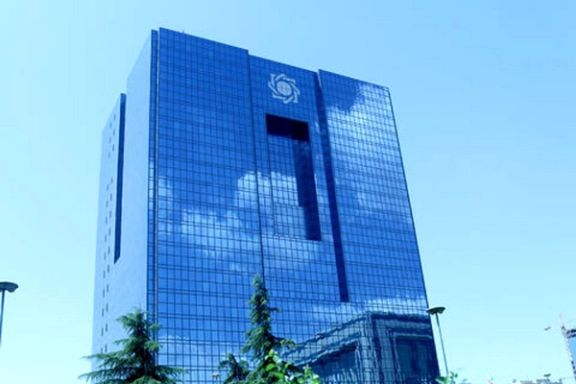
A report by Iran’s Central Bank (CBI) issued in August and made available in October shows an extraordinary growth in liquidity, which fuels high inflation.
The Central Bank has said that liquidity has increased close to 40,000 trillion rials, or $160 billion based on the open market USD rate, (1 USD=250,000 rials), in August 2021, when ex-president Hassan Rouhani left office.
Liquidy increased by 39% year-on-year, but grew eightfold since August 2013, when Rouhani took office.
Liquidity is the major factor in pushing the inflation rate up, which stood at 45.8% last month in Iran.
According to the International Monetary Fund, inflation in Iran was the highest in the world after Venezuela, Sudan, Surinam and Lebanon during last year and it is expected to get even worse in the current year.
United States sanctions on Iran’s oil exports and the banking sector have dramatically reduced government revenues since 2018, forcing CBI to print money. Iran’s economy had barely begun to recover from international nuclear sanctions (2011-2016), when former US president Donald Trump withdrew from the 2015 nuclear deal and reimposed tough sanctions in May 2018.
Iran’s oil exports plunged from a high of around 2.5 million barrels per day in 2017 to as low as 320,000 bpd in 2019-2020, according Kpler data intelligence firm. Illicit oil exports have somewhat increased in 2021 but by their nature of secret deals, there is little cash revenue for Iran.
According to CBI, Iran’s total revenues from crude oil, condensate, petroleum products and gas exports stood at $21 billion during the last year, compared to above $60 billion during pre-sanctions era.
The Central Bank of Iran’s statistics also show that government debt to domestic banks has increased by 35% in August year-on-year and reached 6,550 trillion rials, or $26.2 billion, of which one third is the debt to the Central Bank, indicating a 50% growth year-on-year.
Government debts to the domestic banks increased by 750% during Hassan Rouhani’s presidency.
The Iranian government hasn’t published the total figure for state debts to all sectors, but according to the International Monetary Fund’s estimate, its net debts stood at $227 billion last year. It has more than doubled since 2018.
This amount is also 5 times larger than the current government budget, based on the open market dollar rate, and 36 times more based on the official dollar rate rate.
Each US dollar buys around 280,000 rials in open markets in October, while the official exchange rate is 42,000 rials.
It is not clear how the government could pay off such a huge amount, when the Parliament Research Center has estimated that current year’s budget faces more than 30% deficit for the third consecutive year.
The Central Bank of Iran has also put the government’s foreign debts at $8.84 billion as of August 2021, slightly less than the same month in 2020.

A main concern of Iran in talks to rescue the 2015 nuclear deal would be around ways to verify the lifting of US sanctions, Iran's Foreign Minister has said.
The talks, which aim to bring Washington and Tehran back into compliance with the 2015 nuclear pact aimed at curbing the Iranian enrichment program, were adjourned in June after hardline cleric Ebrahim Raisi was elected Iran's president.
Speaking during a visit to Syria on Saturday, Hossein Amir-Abdollahian reiterated that Iran would "soon" return to the nuclear talks with world powers, which include indirect negotiations with the United States, Iranian state media reported.
"Of course, we will soon return to the Vienna talks and we are keeping our eyes on the issue of verification and receiving the necessary guarantees for the implementation of commitments by the Western parties," state media quoted Amir-Abdollahian as saying.
He did not give details of the verification and monitoring mechanism Tehran was seeking.
Former president Donald Trump pulled the United States out of the nuclear pact in 2018 and reimposed sanctions that crippled Iran's economy, prompting Tehran to breach some of the accord’s nuclear restrictions.
Report by Reuters
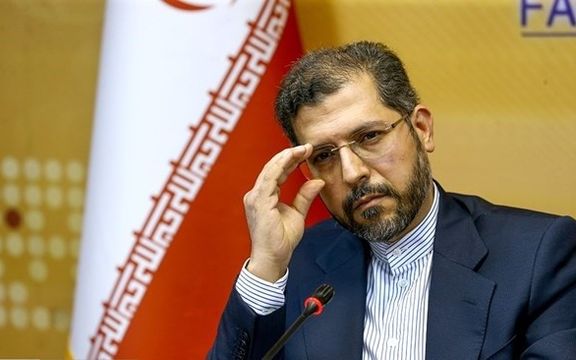
While the Iranian foreign minister has reiterated that his country will soon return to Vienna nuclear talks, it is not clear if Tehran has new preconditions.
Speaking during a visit to Syria, Iran's Foreign Minister Hossein Amir-Abdollahian reiterated that Iran would "soon" return to the nuclear talks with world powers, which include indirect negotiations with the United States. A main concern of Iran in any talks to rescue the 2015 nuclear deal would be around ways to verify the lifting of US sanctions, he said on Saturday.
Questions also linger if Iran is demanding unfreezing of some of its assets held in different counties. The foreign minister hinted last week that the US should release $10 billion to show goodwill.
In an interview with France 24 television cited by the official news agency IRNA Saturday, the foreign ministry spokesman Saeed Khatibzadeh repeated earlier statements that the new administration of President Ebrahim Raisi (Raeesi) has carried out dual reviews: one, now concluded, deciding to continue the talks, and a second reviewing details of talks to date.
According to IRNA, Khatibzadeh stressed that Iran would return to the talks more quickly than the three months it took the United States to open talks in April after President Joe Biden took office in January having pledged to return to the agreement, from which his predecessor Donald Trump withdrew in 2018. But it has been more than three months since the last round of talks in June.
The spokesman criticized the Biden administration for continuing Trump’s ‘maximum pressure’ sanctions despite campaign promises. "The most important issue is lifting all sanctions imposed on Iran," Khatibzadeh said.
European signatories of the deal – the JCPOA, Joint Comprehensive Plan of Action – have expressed concern that Iran is in no hurry to resume talks as it is gaining useful experience in running a nuclear program that has expanded since 2019.
Some pundits in Iran also see no rush. "If Iran was delaying the return to the talks to carry out economic reforms that could lessen the impact of sanctions this would be justified," international affairs analyst Hasan Beheshtipour told the Iranian Labour News Agency (ILNA) Friday.
But Beheshtipour also suggested that unravelling a complex network of sanctions needed negotiations with world powers, and that Iran should not expect all sanctions lifted overnight. Beheshtipour said that the cost of circumventing sanctions − adding $20 to the $5 production cost of each barrel of oil − justified a focus on oil and financial sanctions.
A conservative foreign policy expert, Heshmatollah Falahatpisheh backed Foreign Minister Hossein Amir-Abdollahian's call for the US to ‘unfreeze’ $10 billion of Iran's money as a goodwill gesture.
Falahatpisheh, who headed the parliament's National Security and Foreign Policy Committee 2018-19, said that instead of the fruitless "negotiation for the sake of negotiation" under President Hassan Rouhani, Amir-Abdollahian had suggested "a positive step" towards reviving the JCPOA.
Khatibzadeh has denied that Iran has preconditions for resuming talks, although some pundits have interpreted Amir-Abdollahian's demand for unfreezing Iranian assets as a toughening of Tehran’s approach.